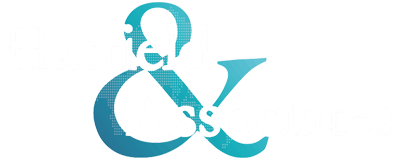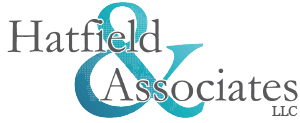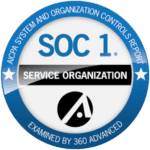The Nuts and Bolts of Freight Audit and Payment: Why Companies Outsource
In the complex web of global commerce, where supply chain intricacies can make or break the bottom line, the intricacies of freight audit and payment (FAP) emerge as a critical yet often underestimated function.
For companies grappling with the daunting task of ensuring accuracy, compliance, and cost-efficiency in their logistics operations, outsourcing FAP could be the strategic touchpoint that unlocks greater efficiency and transparency.
This blog post is a deep-dive into the layers of FAP outsourcing. We’ll demystify the process, explore the motivations behind outsourcing it to freight auditing companies, shed light on the benefits, and provide a road map for businesses considering this pivot.
Understanding Freight Audit and Payment (FAP)
At its core, FAP is the vital process of scrutinizing freight bills to ensure compliance with contractual terms, industry standards, and regulatory requirements. It’s a meticulous analysis that checks for overcharges, duplicates, and other billing errors, which can be disconcertingly common in the high-volume, fast-paced freight industry.
The payment aspect is equally significant, involving the actual settlement of these verified freight bills. It’s the execution arm that ensures what is invoiced is paid accurately and on time, fostering trust and strong supplier relationships.
Navigating the multi-tiered landscape of FAP in-house is not just resource-intensive; it also requires expertise in auditing practices, regulatory knowledge, and robust software solutions.
This is where outsourcing can be a game-changer, affording companies access to specialized services and economies of scale that may not be achievable within the confines of their organization.
The Rationale Behind Outsourcing FAP
In a competitive marketplace, the ‘why’ behind any outsourcing decision is critical. Organizations are driven to outsource FAP for several compelling reasons:
Expertise Accessibility
Freight audit is a specialized skill that requires dedicated personnel well-versed in nuances of carrier tariffs, fuel surcharges, and complex accessorial charges. Outsourcing to a FAP provider grants companies immediate access to a pool of professionals adept at identifying and rectifying billing errors swiftly.
Cost Containment and Predictability
Unforeseen billing discrepancies can send logistic costs spiraling. Outsourcing FAP introduces predictability and control into cost management, helping companies to maintain and forecast budgetary rigor.
Enhanced Accuracy and Compliance
The outsourced FAP model offers a layer of security against the risks associated with manual auditing processes. Professional auditors utilize cutting-edge analytical tools to ensure that every bill is error-free and compliant, which can be a significant relief in an industry fraught with oversight challenges.
Focused Core Business Operations
By leaving the complex task of FAP to experts, businesses can channel their resources, both human and financial, towards their core operations – the areas where their expertise truly lies, and where they can affect real business growth and innovation.
Scalability and Flexibility
The volume of freight and its associated financial transactions is rarely static. Outsourcing providers are equipped to handle fluctuations in volume, without the need for in-house teams to re-calibrate their operational scope.
The Pros and Cons of FAP Outsourcing
Like all strategic business decisions, outsourcing FAP has its share of pros and cons that merit contemplation:
Advantages
- Efficiency Gains: Outsourced providers are capable of auditing and processing a high volume of invoices quickly, accurately, and cost effeciantly. The average cost to audit and process an invoice internally ranges but the average is $13. Hatfield and Associates is able to reduce that to a fraction allowing the process to pay for itself by reducing man hours and missed savings. This all contributes to a more streamlined and efficient supply chain.
- Expert Insights: FAP providers are often at the forefront of industry developments, providing clients with valuable insights into potential savings and best practices.
- Technology Leverage: Utilizing the latest in machine learning and AI technologies, outsourcing firms can catch billing errors that may elude standard in-house processes.
Disadvantages
- Loss of Oversight: Entrusting a third party with a critical financial function means relinquishing a degree of granular, in-house control over the process.
- Potential for Misalignment: In rare cases, the priorities of an outsourcing vendor may not entirely align with your company’s, leading to a slip in service quality or compliance.
- Communication Complexities: An additional layer in the process can sometimes result in communication challenges if not managed effectively.
- Non audited firms: Many firms are not audited by a third party. Hatfield and associates is a SOC audited firm assuring clients of pristine controls.
Key Considerations for Choosing an Outsourcing Provider
Opting to outsource FAP to freight bill audit companies is just the beginning; the critical choice then becomes selecting the right provider. No two outsourcing partners are identical, and the selection process necessitates a discerning eye. Several core considerations include:
Industry Experience and Track Record
A solid history and demonstrated expertise in handling FAP for companies in your industry is non-negotiable. Look for provider references with similar volumes and carrier profiles to gauge their suitability.
Technology Capabilities
An outsourcing firm’s technological arsenal is paramount. Verify that their freight audit and payment software and systems are up-to-date and can seamlessly integrate with your existing platforms.
Service Level Agreements (SLA) and Contractual Terms
Understanding the SLA is essential. Clarity on performance metrics, turnaround times, and issue resolution guarantees is vital in setting expectations and ensuring accountability.
Cost Structure
Beyond the base fee, a provider’s cost structure should be transparent and customizable to your company’s unique needs. Evaluate the pricing model to determine its long-term financial viability.
Data Security Measures
Given the sensitive nature of financial data involved in FAP, robust data security protocols and compliance must be in place. Ensure potential vendors meet or exceed your company’s data protection standards.
Implementing the Transition to Outsourced FAP
Transitioning to outsourced FAP is more than just contractual formalities and system integrations; it requires a nuanced change management strategy. Smooth, successful transitions are built on:
Comprehensive Data Handoff
Accurate, well-organized data is indispensable. Ensure that your current FAP data is in a format that facilitates an effortless transfer to the new provider’s systems.
Change Championing
Clear, consistent communication about the benefits and operational changes from FAP outsourcing is essential. Internal stakeholders must understand and buy into the new model.
Provider Relationship Management
Ongoing, proactive management of the relationship with your FAP provider is essential. Regular check-ins, performance reviews, and open communication will be the lifeblood of a successful collaboration.
Continual Improvement
The transition to an outsourced model isn’t a one-and-done proposition. Be prepared to support continual process improvement initiatives and be open to making adjustments as needed.
Conclusion: FAP Outsourcing in the Modern Supply Chain
The complexity of modern supply chains, coupled with the demand for precision and transparency, renders FAP an operation ripe for optimization.
Outsourcing this function to a specialized provider can unlock newfound operational agility while affording companies the bandwidth to focus on their strategic growth imperatives.
Before making the leap, however, it is paramount for companies to conduct thorough due diligence in selecting the right outsourcing partner, ensure all transition aspects are addressed with diligence, and carry through with a vigilant eye for continuous improvement.
In the holistic vantage of a company’s logistics strategy, FAP outsourcing isn’t just about mitigating risk and containing costs; it’s about fostering an environment primed for sustainable growth and competitive advantage in a market where precision and efficiency reign supreme.




